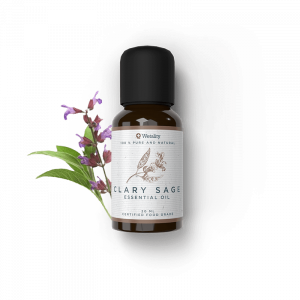
Sage has one of the longest histories of use of any culinary or medicinal herb.
Besides being very helpful in relieving many health symptoms, this plant is widely used in the preparation of foods because of its flavoring and seasoning properties.
It was used by Ancient Egyptians and Old Greek herbalists. Traditionally, the leaves have been made into a poultice and used externally to treat sprains, swelling, ulcers, and bleeding.
It was also used as a fertility medicine. In medieval times, sage was called “salvia salvatrix,” which means “sage, the savior.” This is because it was one of the primary ingredients of concoction that was used to ward off the bubonic plague.
In recent years, this plant has been a subject of intensive studies to document its traditional use and to find new biological effects. These studies have revealed a wide range of pharmacological activities for S. Officinalis.
The health benefits of sage are attributed to flavonoids, such as apigenin, luteolin, and diosmetin, which are known for their antioxidant and anti-inflammatory properties. Sage can also provide your body with rosmarinic acid, a polyphenolic compound with unlimited health potential.
Sage is native to the Middle East and Mediterranean areas, but today is naturalized throughout the world. In folk medicine, S. Officinalis has been used for the treatment of different kinds of disorders, including seizure, ulcers, gout, rheumatism, inflammation in the throat and skin, dizziness, tremor, paralysis, diarrhea, and hyperglycemia.
Present pharmacological findings for S. Officinalis include anticancer, anti-inflammatory, antinociceptive, antioxidant, antimicrobial, antimutagenic, antidementia, hypoglycemic, and hypolipidemic effects.

Clinical Studies
Clinical studies S. Officinalis show improvement of cognitive functions, reduction of the throat pain intensity, reduction of the blood levels of total cholesterol, triglyceride, LDL and VLDL (bad cholesterol); Increase of HDL (good cholesterols) level. Sage shows effectiveness in reducing sensitivity to pain. It was also confirmed with clinical trials that this medicinal plant has memory-enhancing effects.
The potential antitumor activity of sage has been studied on several cancerous cell lines and on animal models of cancer. It has been reported that sage tea drinking prevented initiation phases of colon carcinogenesis.
On the basis of the available literature evidence of the pharmacological effects, this plant shows anticancer, anti-inflammatory, antioxidant, antimicrobial, hypoglycemic (decreasing blood sugar), hypolipidemic (lowering cholesterol and triglyceride levels), and memory-enhancing effects. It can also reduce pain sensitivity. There is one basic precaution: Salvia officinalis should not be used by people with epilepsy or other seizure disorders.
Antioxidant Activities
Oxidative stress plays an important role in the initiation and progression of several diseases, such as cancer, cardiovascular disorders, diabetes, and neurological diseases. Evidence from several studies suggests that S. Officinalis has potent antioxidant activities.
Antibacterial Activity
The essential oil and ethanolic extract of S. Officinalis show strong bactericidal and bacteriostatic effects against both Gram-positive and Gram-negative bacteria. In addition to antibacterial action, S. Officinalis has been reported to induce antifungal, antiviral and anti-malarial effects.
Antimicrobial effects of S. Officinalis are attributed to terpenes and terpenoids compounds found in this plant’s essential oil. It has been shown that camphor, thujone, and 1,8-cineole from sage have antibacterial effects.
This is a very potent herb, and because it’s useful for treating many conditions, it’s called “natural antibiotic”. With its powerful components, sage is the herb that heals and purifies the body, and it’s widely available and easy to grow in your own backyard.







